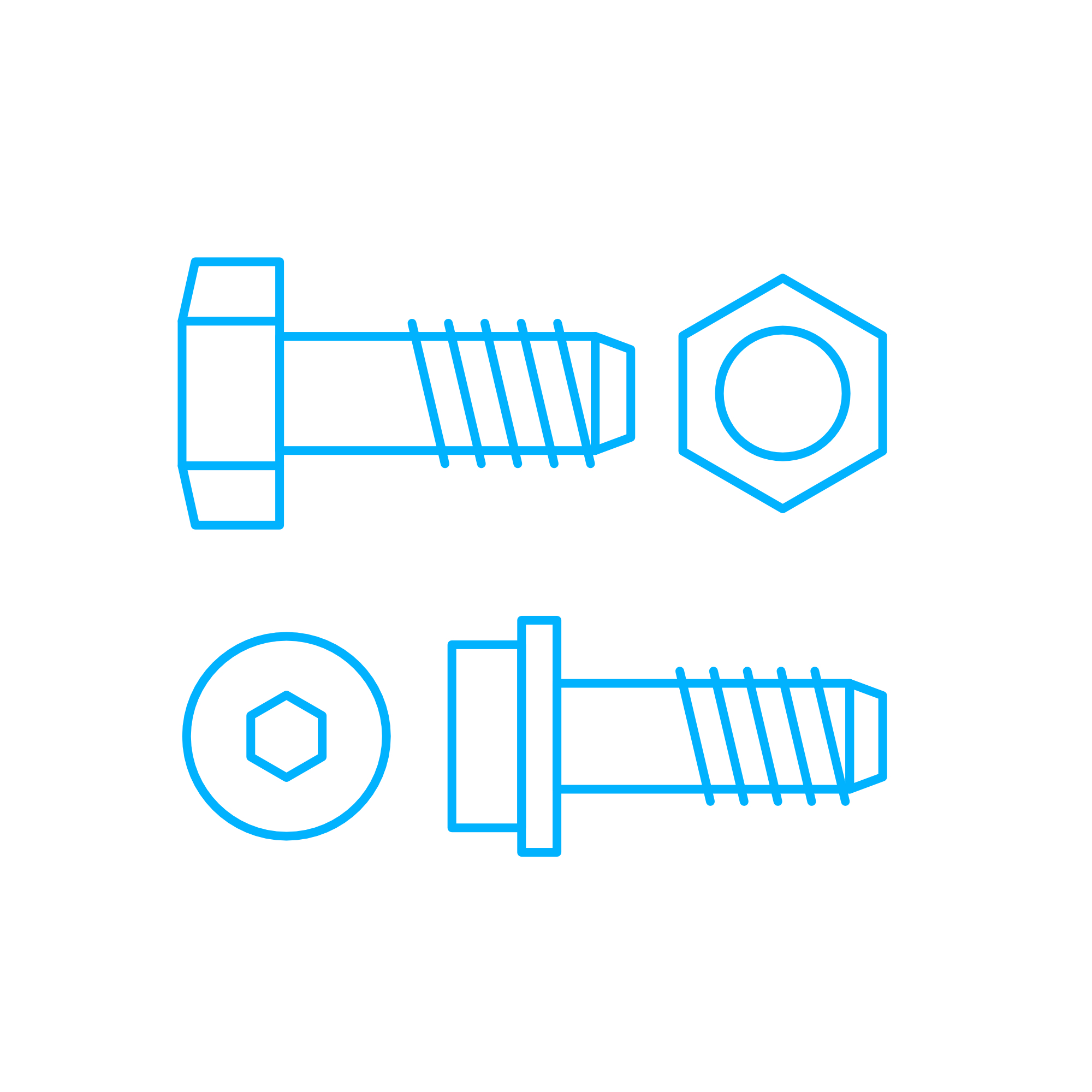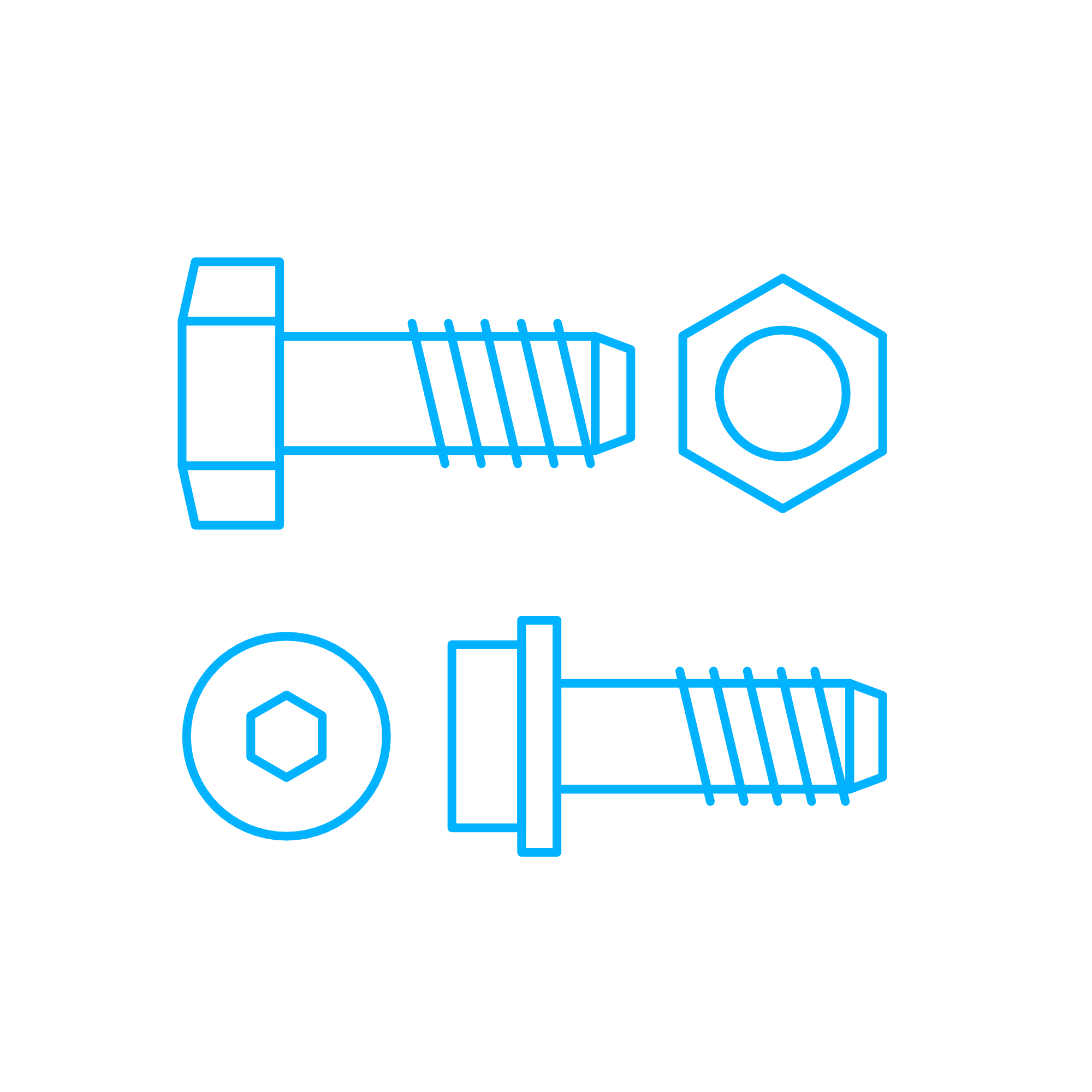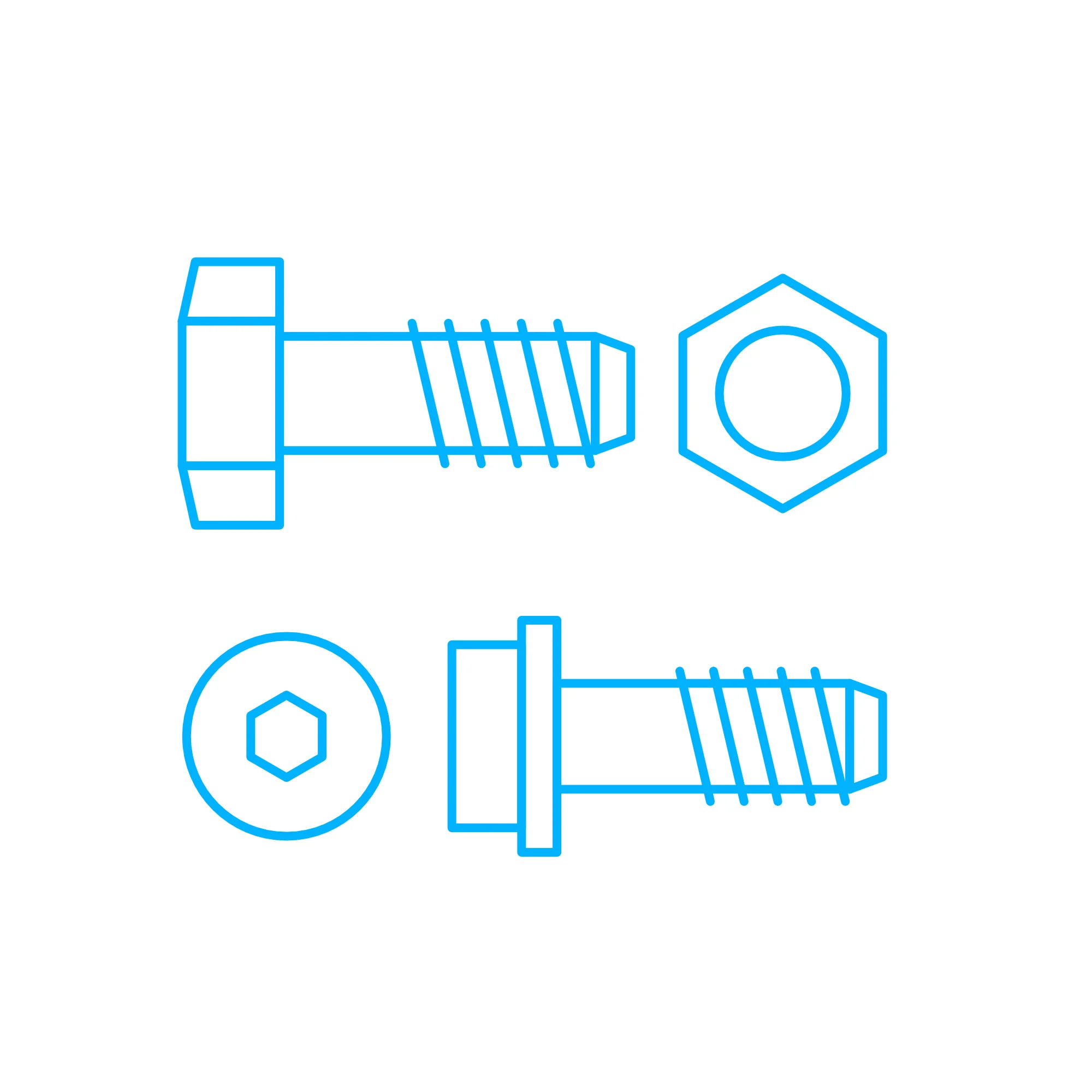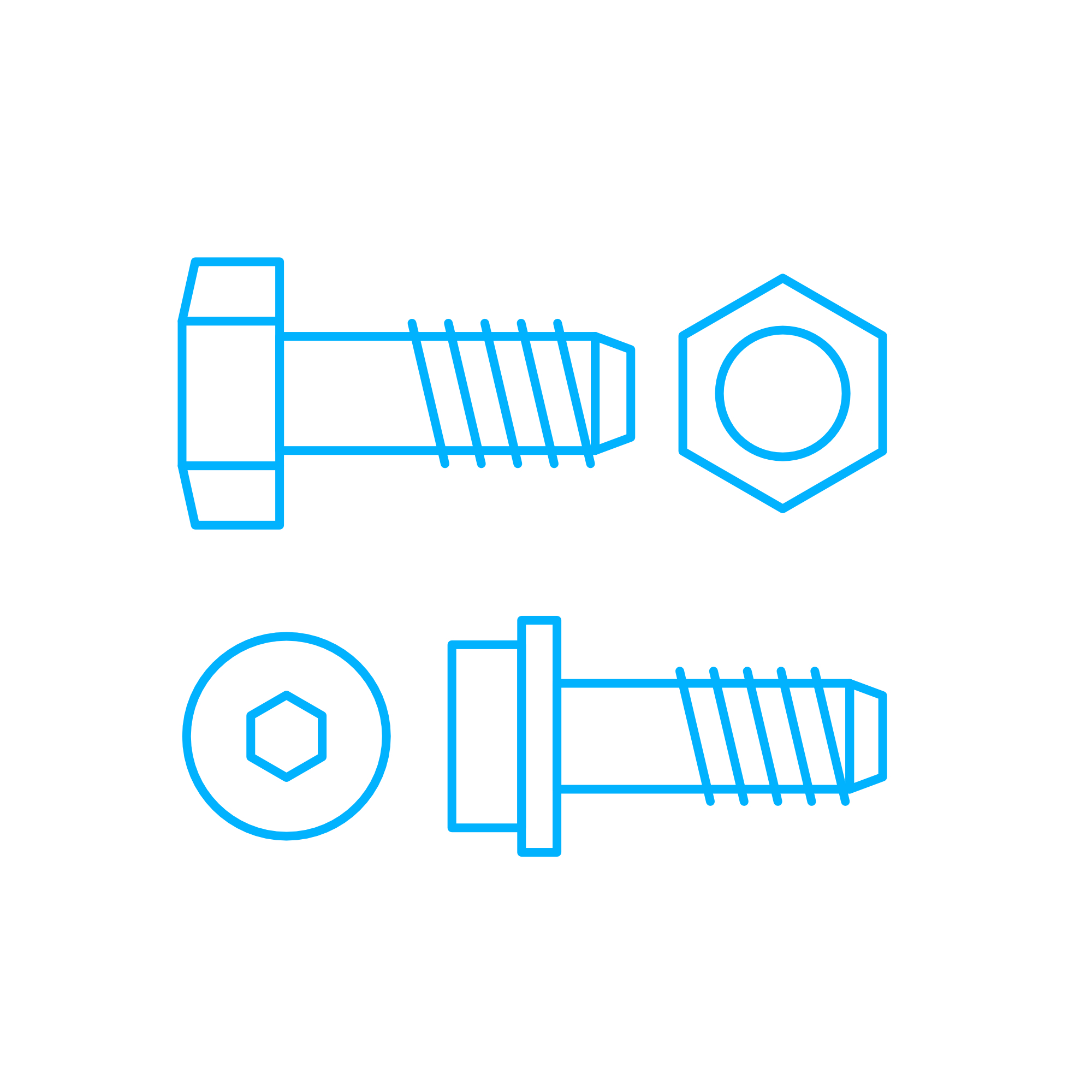COUNTERSUNK SCREW and Screws for Marine and Diesel Engines
Screws are precision fasteners that convert tightening torque into axial preload, clamping critical components throughout an engine. From crankcase covers and gear housings to turbocharger brackets, instrumentation panels, and safety guards, correctly specified screws maintain alignment, prevent leakage, and withstand vibration and thermal cycling. Within this family, the COUNTERSUNK SCREW provides a flush, snag-free surface where clearance, airflow, or safety requirements prohibit protruding heads—common needs in marine engine rooms and on diesel engine auxiliaries.
In high-duty diesel and gas engines, screws must deliver predictable performance despite shock loads, torsional vibration, salt-laden atmospheres, and frequent maintenance cycles. Material strength classes, head geometry, thread tolerances, coatings, and installation discipline all determine the reliability of each joint. For shipowners, operators, and maintenance planners, selecting the right screw—including the correct COUNTERSUNK SCREW for marine engine applications—directly influences uptime, efficiency, and lifecycle cost.
Technical function of Screws and COUNTERSUNK SCREW in engine assemblies
The primary function of screws in engines is to establish and preserve a defined preload that clamps mating parts together. Adequate preload prevents micro-movement, fretting, and gasket blow-by, while controlling load paths through housings and frames. When tightening, a portion of the applied torque overcomes friction under the head and in the threads, and the rest stretches the shank to create elastic clamping force. Correct lubrication, surface finish, and seating geometry are therefore critical to reach target preload consistently.
How a COUNTERSUNK SCREW supports performance, efficiency, and safety
A COUNTERSUNK SCREW in diesel engine assemblies seats in a conical countersink (commonly 90°), creating a flush surface. This is advantageous on rotating-guard covers, fan shrouds, walkway plates, and aerodynamic ducts, where protrusions can disturb flow, snag clothing, or impede maintenance. On marine engine equipment, the flush head reduces the risk of damage during tight passes and improves sealing around covers. Specifying the correct seat angle and head diameter ensures the conical contact transfers preload without point loading that could relax under thermal cycling.
Typical engine-duty screws are property class 8.8, 10.9, or 12.9 alloy steels for high tensile strength, with options for stainless or nickel-base alloys where corrosion or temperature demands dictate. Coatings such as zinc flake, phosphate-oil, or specialized marine systems control friction coefficients for consistent tightening while adding corrosion protection. Thread forms (metric coarse/fine, UNC/UNF) and tolerances must match the tapped component; mismatches cause galling or insufficient engagement.
- · High tensile strength for stable preload under vibration.
- · Precise head geometry, including 90° seats for a COUNTERSUNK SCREW.
- · Controlled friction via coating or lubrication for repeatable torque-to-tension.
- · Corrosion resistance for marine engine environments.
- · Metric and inch thread standards with defined tolerances.
- · Compatibility with locking methods (threadlocker, prevailing nuts, washers).
- · Heat treatment and material traceability for safety-critical joints.
- · Flush installation to protect personnel and components.
When selecting hardware, consider preload targets, joint stiffness, service temperature, galvanic pairing, and disassembly frequency. For example, a COUNTERSUNK SCREW OEM parts selection with the correct property class and coating enables reliable torque values and prevents head embedding in softer covers, preserving gasket compression and sealing integrity over long service intervals.
Importance of Screws and COUNTERSUNK SCREW for engine operation and service life
Reliable screw joints directly affect engine availability. Insufficient preload leads to joint separation, leakage (oil, coolant, exhaust), and misalignment that accelerates bearing wear and gear noise. Over-tightening risks thread stripping, shank yielding, or distortion of thin covers, which compromises sealing. In marine engine service, corrosion under the head or in threads can reduce clamping force and make removal hazardous, increasing downtime.
Specific to the COUNTERSUNK SCREW, improper seat angle, damaged countersink surfaces, or soft mating materials can cause head creep and preload loss. Protruding alternatives where a flush fit is required can disrupt airflow around charge-air coolers or fan housings, costing efficiency, while creating trip or snag hazards. Routine torque checks, correct tightening sequences, and replacement at defined intervals (especially after high-temperature excursions) are best practice for long service life.
Advantages of OEM spare parts suitable for Screws and COUNTERSUNK SCREW
Using OEM spare parts suitable for screws ensures dimensional accuracy, certified materials, and consistent friction behavior—key to achieving the specified preload without guesswork. For a critical COUNTERSUNK SCREW, seat angle accuracy, head height, and drive recess tolerances preserve tool engagement and uniform load transfer across the conical seat, avoiding localized stress and relaxation.
Performance benefits include predictable torque-tension curves, reduced risk of self-loosening, and stable sealing performance over long intervals. Reliability improves through controlled heat treatment, batch traceability, and adherence to standards such as ISO 898-1 (mechanical properties of carbon steel screws), ISO 3506 (stainless), and ISO 965 (thread tolerances). From a budget perspective, correct parts minimize rework, prevent collateral damage, and shorten maintenance windows, reducing total cost of ownership. Service life extends because the right coating, base material, and geometry maintain preload in harsh engine-room climates, including salt spray and cyclical temperature gradients.
MOPA: your partner for OEM parts, Screws, and COUNTERSUNK SCREW
MOPA is an experienced, reliable partner for OEM spare parts suitable for screws—including the COUNTERSUNK SCREW—for diesel and gas engines. We focus on speed, quality, and security: short lead times from vetted manufacturers, consistent documentation (e.g., material certificates upon request), and robust logistics to keep critical vessels and power installations running. Our team supports purchasers and technical decision-makers with application know-how, helping you match property class, coating, and geometry to the joint design so installations are safe, efficient, and compliant.
Conclusion: Screws and COUNTERSUNK SCREW keep engines safe and efficient
Screws are small components with oversized impact on engine reliability, and the COUNTERSUNK SCREW is indispensable wherever a flush, secure fit protects performance and people. Choosing OEM spare parts suitable for screws ensures consistent preload, long service life, and dependable uptime in demanding marine and diesel environments.





